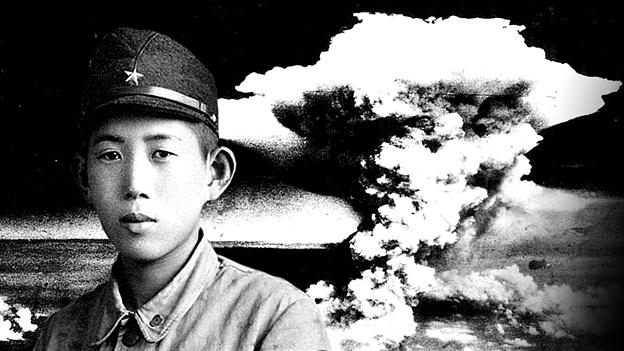VJ Day to be marked with commemoration in Belfast
- Published
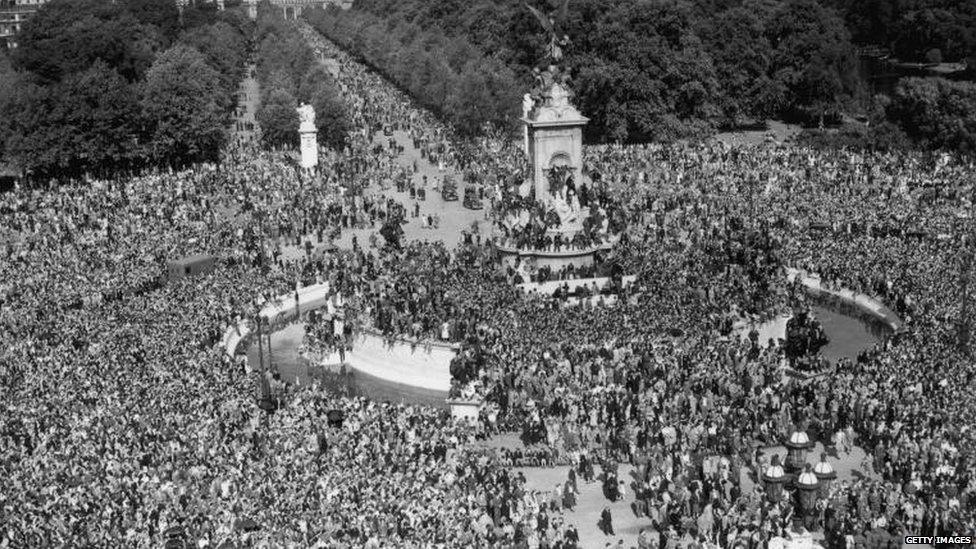
Jubilant crowds gathered outside Buckingham Palace on VJ Day in 1945
A commemoration will take place in Belfast later ahead of the 70th anniversary of VJ Day, when World War II ended after Japan's surrender.
VJ Day - 15 August 1945 - followed the destruction of Hiroshima and Nagasaki by atomic bombs.
Nobuko Pollock, 83, who now lives in Belfast, survived the atomic bomb on Nagasaki, but her brother, who was closer to the blast, was killed.
She has spoken of the horror of the attack.
Nobuko Pollock has lived in Belfast for more than 50 years
"I was 13 when the bomb dropped," she said.
"I didn't know much about it. My brother didn't come home that night. We didn't know if he was dead, and they went to search for him.
"He was just lying dead on the road, like he was sleeping.
"There were so many dead people and we had to cremate him on the road."
Mrs Pollock has lived in north Belfast for more than 50 years, having married a man from the city.
Seventy years on from Hiroshima and Nagasaki, she said: "I still want to know why they dropped the bomb.
"I saw so many injured people coming back from Nagasaki, and you saw the suffering of the women and children - some people have never forgiven them."
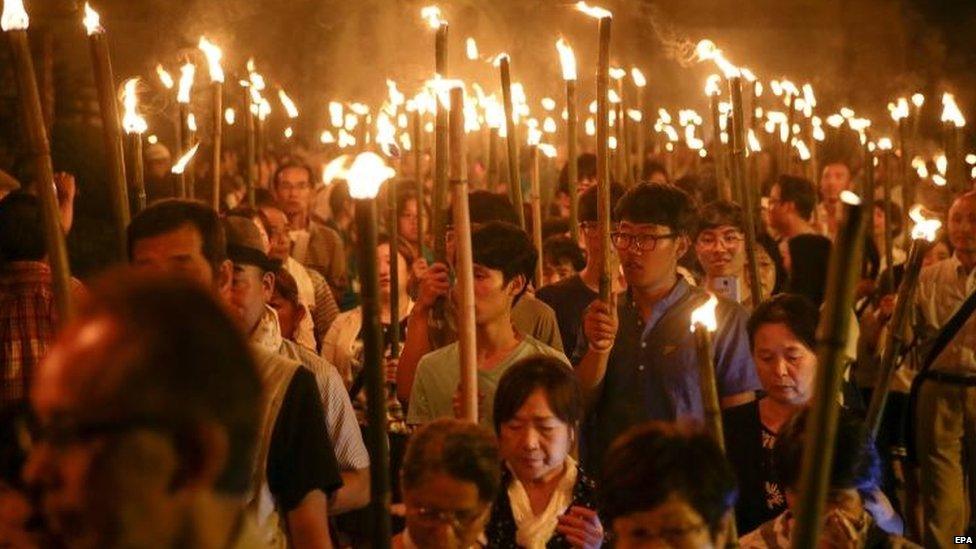
A torchlight procession was held in Nagasaki 70 years after the atomic bombing
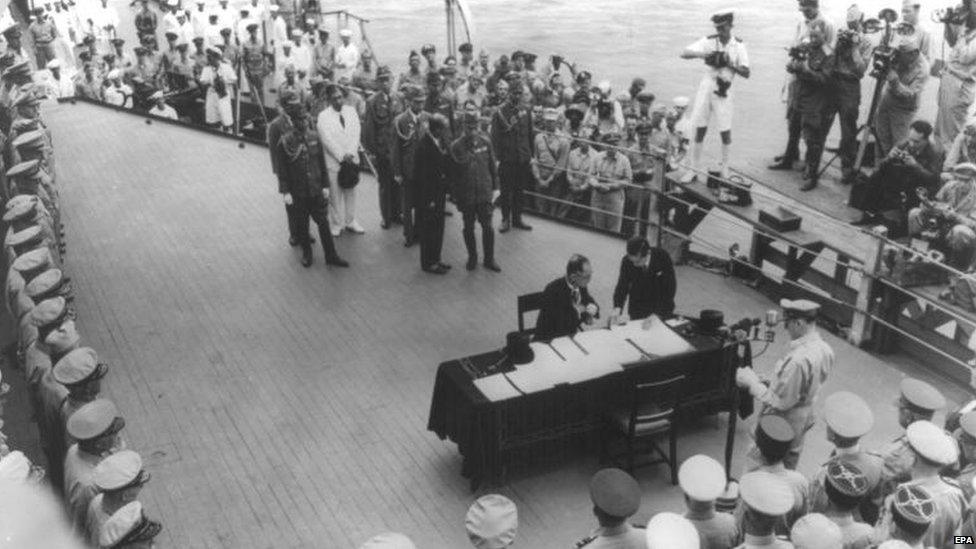
Japanese Foreign Minister Mamoru Shigemitsu (seated) signs the surrender document aboard the USS Missouri
A series of events to mark VJ Day will be held this weekend to commemorate the sacrifices of UK soldiers who fought and died defeating Japan.
The Japanese surrendered on 14 August 1945 and the next day was celebrated as Victory over Japan (VJ) Day.
Its formal surrender was signed on 2 September 1945 at a ceremony in Tokyo Bay aboard the American battleship, USS Missouri.
- Published6 August 2015
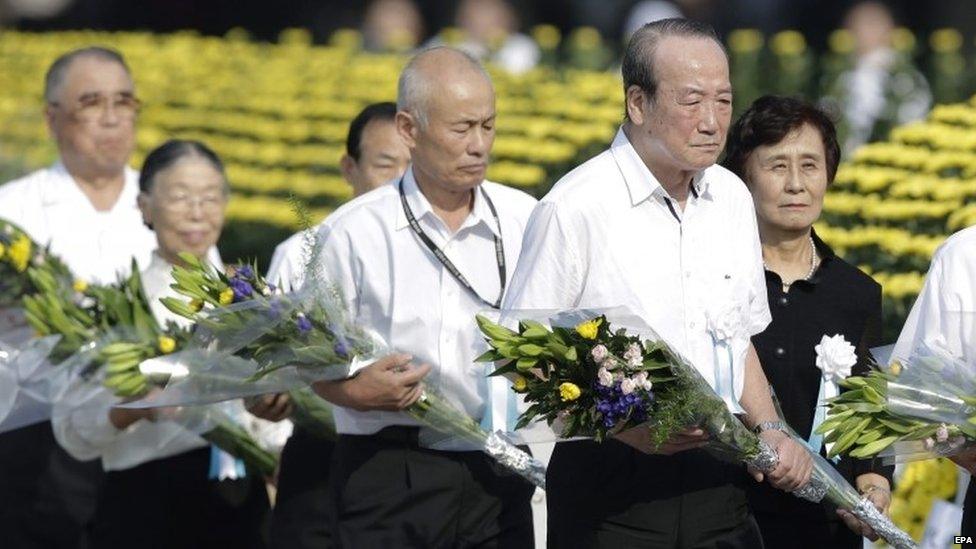
- Published4 August 2015
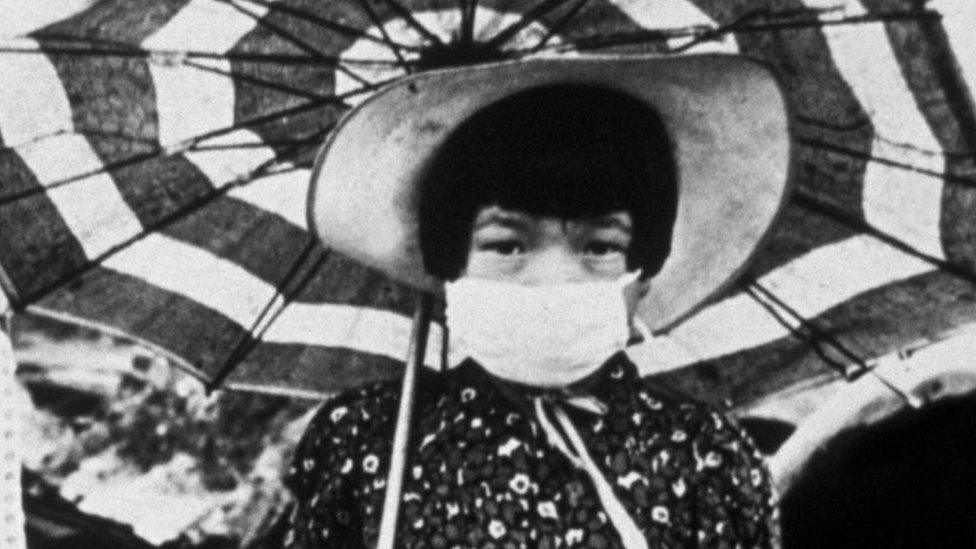
- Published23 July 2014
